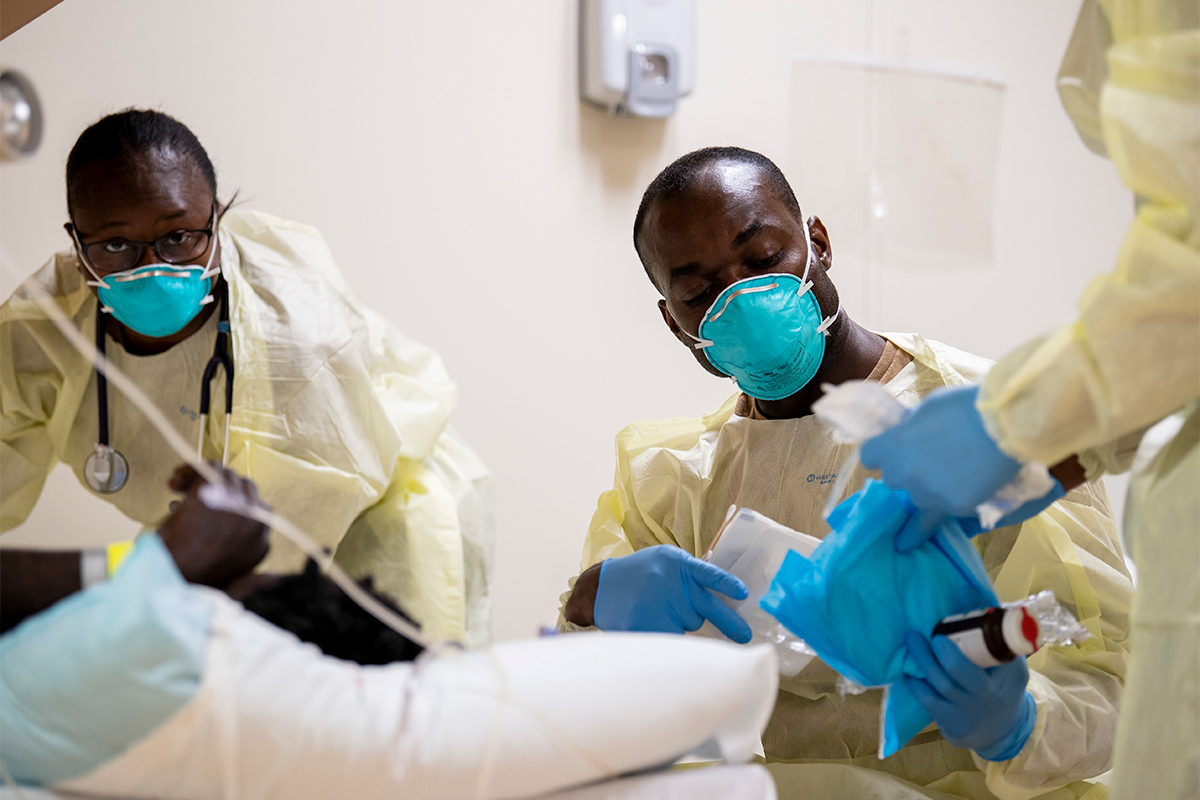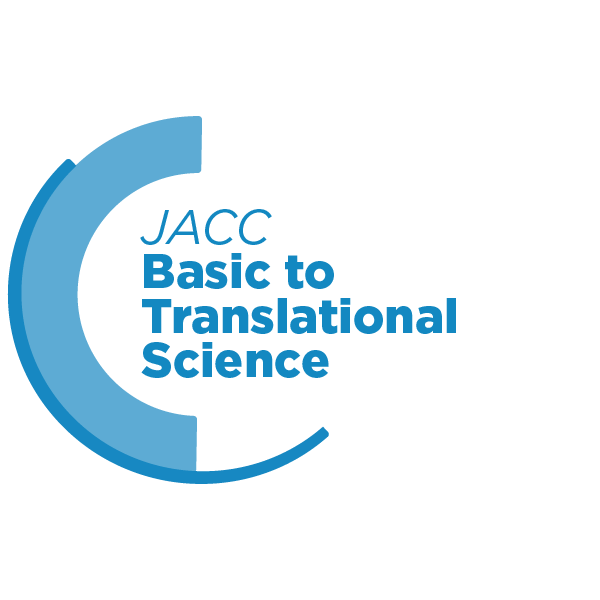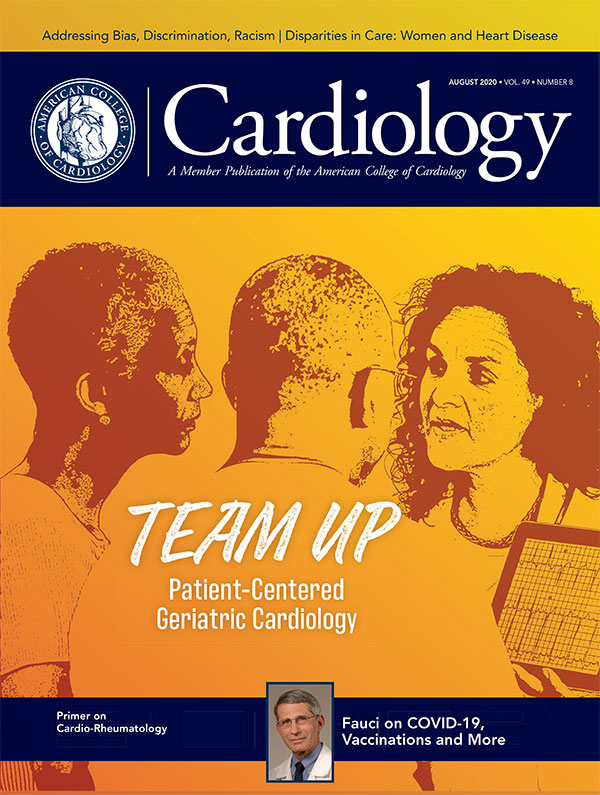Feature | Navigating the COVID-19 Infodemic

Along with the COVID-19 pandemic, came a flood of medical information. Dubbed an "infodemic," this fast and furious deluge of published articles, news reports and press releases, has created a great deal of uncertainty for clinicians and patients.
It has challenged clinicians to stay afloat with the sheer volume, along with interpreting the data and determining how to apply it in practice – and for whom and when. It has challenged patients: what information should they trust, and from what sources?
What's an infodemic? The World Health Organization defines it as an excessive amount of information concerning a problem such that the solution is made more difficult. Sound familiar? Katie Berlacher, MD, FACC, noted that clinicians today are battling two diseases: COVID-19 and the related infodemic.
Berlacher moderated the inaugural session of ACC's Summer COVID-19 Education Series, which focused on strategies to manage the flood of information and the critical appraisal of the data. The volume of studies and the speed at which they are being published requires vigilance in examining the quality of the data and the quality of the peer review.
"People need to be skeptical and astute readers," advised Harlan M. Krumholz, MD, SM, FACC, a panelist in the session.

In the virtual live session, an examination of studies related to the use of hydroxychloroquine by Roxana Mehran, MD, FACC, and the use of ACE inhibitors/ARBs by Michelle Kittleson, MD, FACC, in patients with COVID-19, brought reasoned insights on their use as well as perspectives on evaluating the literature.
The rigor and interpretation of quantitative research requires interpreting the statistical results in the context of the study design, execution and patients enrolled, noted Mehran.
In practice, this means: 1) determining whether the study population and the measured outcomes are relevant to the research question, 2) evaluating the study design by looking at deviations from the study protocol, 3) looking for potential sources of bias and interpreting the results accordingly, 4) interpreting study results by assessing whether data are properly analyzed and methods and results are adequately reported, and 5) correlating results with clinical implications.
In the absence of well-designed, randomized trials early in the pandemic, the global medical community looked to small observational trials to try to understand the impact of ACE inhibitors and ARBs in patients with COVID-19, noted Kittleson. But this was often done without properly gauging the limitations of those trials, she added, creating confusion for professionals and anxiety for patients.
"Patients don't read guidelines, but they read headlines," said Kittleson.

Early on during the pandemic, hypertension became a focus when it was shown to be more common in patients with severe COVID-19 or who died from it. Hypertension is often treated with renin-angiotensin-aldosterone system (RAAS) inhibitors, which are also known to upregulate ACE2 expression. ACE2 is the co-receptor for SARS-CoV-2 entry into cells.
"This can lead to an association between RAAS inhibitors and COVID-19. But the problem is that association does not equal causation, because the association is fraught with potential confounders," Kittleson said.
"There is a problem here with known confounders, like age and other comorbid conditions, as well as unknown confounders, like the potential protective effect of ACE2 against lung injury."
What's the best way to interpret results from observational studies? Kittleson advises being mindful that:
- Clinical decisions cannot be based on plausible pathophysiology.
- Observational studies are hypothesis-generating. In this case, the uniformity of findings is reassuring: ACE inhibitors and ARBs are not harmful. The observed benefit of ACE inhibitors should not change their use.
- In the absence of randomized controlled trials, stick with the best possible established evidence over observation.
Tips For Moving Forward

Medical professionals can be critical readers, Krumholz said, by keeping the information in perspective, even when it is from sources that are generally respected for their reliability.
"In that moment, there was such a need for information," he said of the start of the pandemic. But he noted that many studies were published in journals known for doing a lot of vetting, but the articles didn't meet the same standard as their usual level of articles.
Communicating honestly with patients about being confused about the conflicting information being reported, just as they are, can gain and maintain their trust, said Kittleson.
"Give them an understanding that you are engaged and invested in the best outcomes."
How can a busy clinician keep up with all the COVID-19 updates? Mehran recommended using ACC's COVID-19 Hub (ACC.org/COVID19).
"We are at a funny place for which sources we trust," Mehran said.
"We need to break away from the bad and embrace the good of science. We have to learn to filter the bad information out. Using the ACC COVID-19 Hub has been important. When in doubt, randomize."
Warped Speed: COVID-19's Impact on Medical Journals

"Should journals favor scientific rigor over timeliness of reporting science that may change the response to a global crisis," asked Douglas L. Mann, MD, FACC, editor-in-chief of JACC: Basic to Translational Science in a recent editorial.
In discussing how the COVID-19 pandemic has "transfected and transformed" medical journals, he said, "In a perfect world, journals should be able to accomplish both of these goals. In the imperfect world that we live in, in which the planet is facing a crisis brought about by a global pandemic that has crushing human and economic costs we cannot even begin to fully wrap our heads around let alone fully understand, it is perhaps inevitable that journals will get it wrong at times, in an earnest and honest effort to get it right for humanity. Going forward, we as a community need to acknowledge these shortcomings and better understand the underpinnings of these mistakes, lest we continue to repeat them."
Randomized Trials Best Method to Understand Treatment Effects

Despite concerns that traditional randomized clinical trials (RCTs) have "become too complex and selective," they remain the "best current method to understand the causal relationship between an intervention and subsequent population-level outcomes for most common chronic illnesses," according to a review paper in the Journal of the American College of Cardiology.
Alexander C. Fanaroff, MD, MHS, et al., compare use of RCTs vs. common sense and clinical observation to support clinical decision-making. The review is relevant in the COVID-19 era when the need for effective treatment has led to proposed "common sense" treatments, with some arguments that RCTs will delay treatment. The authors note the review "underscores the flaws in such reasoning and highlights the limitations of nonrandomized" trials.
The authors note that common sense and clinical observation may fail because of incomplete understanding of pathophysiology, biases and unmeasured confounding in observational research, and failure to understand risks and benefits of treatments within complex systems.
Real-world data sources have helped identify rare adverse events but have also been limited in understanding the effects of treatments, they write. Moving forward, randomization should be applied broadly to real-world data to understand treatment effects and produce large, representative study populations, they write, adding this will require investment in electronic health records and interoperability, as well as the ability to enroll patients in RCTs and gather research data. In addition, these efforts will require collaboration among health systems, regulatory authorities, researchers, and pharmaceutical and device industries.
Adapting traditional RCTs "within the real world will require a reimagining of the clinical research enterprise, but the alternative is capitulating and basing treatment decisions on common sense and clinical observation," the authors write.
"As the experience of the past 40 years shows, there is no substitution for randomization," they conclude.
Think Before You Tweet

While social media can be a great way to quickly share information, connect with others and engage in discussions, it's always a good reminder to think before you post, retweet/share, and/or like a post or Tweet.
One wrong post could have serious impacts both personally and professionally. Of note, ACC's updated Code of Ethics not only broadens the scope of individuals who may bring a complaint of a violation of the Code of Ethics to include any ACC member, not just an FACC, it also includes more robust language expressly prohibiting discrimination and harassment toward patients and other professionals.
Social media broadens your audience exponentially, so be sure what you're sharing on social media could not be viewed as racist or discriminatory by others. Once live it is very hard to retract a post.
"When in doubt, stay out" is a good rule of thumb when considering whether to post or share, and remember "liking" a post counts too. Reviewing your privacy settings on a regular basis, as well as including "views & opinions are my own" in your bio are also good practices.
For other social media tips, click here to read ACC's Social Media Policy. Additionally, all ACC members are encouraged to review the Code of Ethics at ACC.org/CodeOfEthics.
Clinical Topics: COVID-19 Hub, Heart Failure and Cardiomyopathies, Novel Agents, Statins
Keywords: ACC Publications, Cardiology Magazine, COVID-19, Pandemics, severe acute respiratory syndrome coronavirus 2, Coronavirus, Renin-Angiotensin System, Angiotensin-Converting Enzyme Inhibitors, Uncertainty, Hydroxychloroquine, Peptidyl-Dipeptidase A, Lung Injury, Learning, Reproducibility of Results
< Back to Listings


